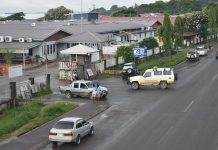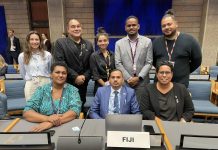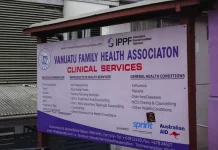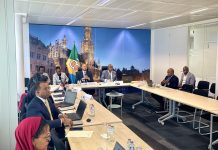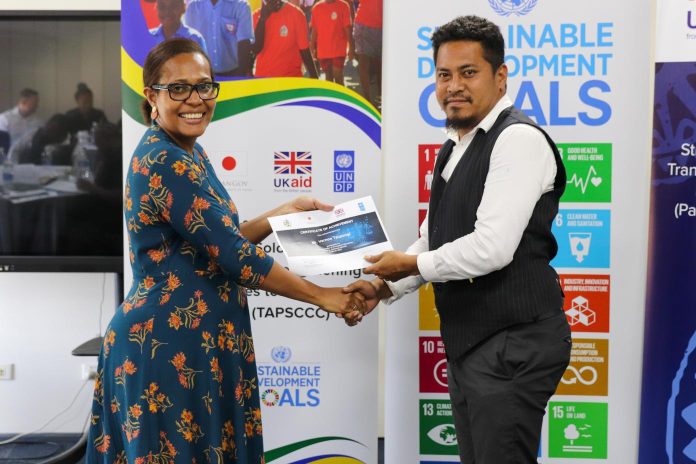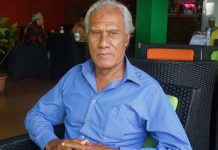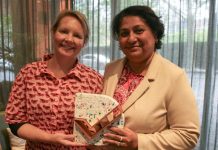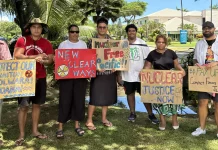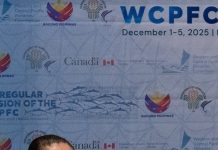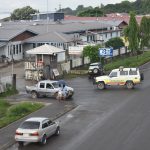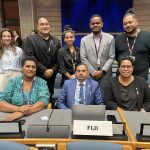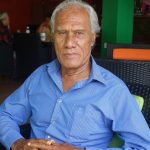Officials and practitioners from the public and private sectors from seven Pacific islands countries, Cook Islands, Fiji, Nauru, Samoa, Solomon Islands, Tonga and Vanuatu, engaged in holistic policy and practical discussion, aiming to contribute to combating corruption, stemming illicit financial flows and preventing tax evasion.
The two-day workshop, with the participation of experts from the Asia Pacific Group on Money Laundering (APG) and Australian Transaction Reports and Analysis Centre (AUSTRAC), coordinated by the UN Development Programme (UNDP) discussed the topic of beneficial ownership transparency as one of the critical elements in addressing corruption, enabling effective taxation and promoting responsible businesses.
Beneficial ownership transparency means that the ultimate owners of an entity, i.e., the natural persons who control an entity of different companies, trusts, foundations, or other entities, are disclosed through a central public registry. Numerous case studies across the globe have demonstrated how corporate vehicles, such as corporations, trusts, foundations, and fictitious entities, can be used to improperly hide and transfer the proceeds of crime and conceal the identities of those involved in large-scale corruption.
Speaking at the opening ceremony Miwa Yoshiaki, the Ambassador of Japan to the Solomon Islands, reaffirmed Japan’s commitment to supporting the Government of Solomon Islands to “strengthening the institutional arrangements for integrity and transparency.”
Miwa Yoshiaki further highlighted that “the anti-corruption and anti-money laundering efforts of the UNDP Pacific Office and Solomon Islands Government contribute to developing effective governance.”
British High Commissioner to Solomon Islands and Nauru,Thomas Coward emphasised that corruption and money laundering are “complex issues” and they require “all stakeholders to come together to fight against money laundering and corruption.”
“I am proud that the UK has funded this workshop. It brings us together to work as one against criminal flows,” Coward said.
APG Executive SecretaryGordon Hook said, “Pacific jurisdictions are not immune to financial crime risks but face many challenges with implementing the full range of FATF’s anti-money laundering and countering the financing of terrorist financing measures, including, most importantly, in relation to beneficial ownership disclosure. Implementing those measures, and establishing beneficial ownership registers accessible by law enforcement authorities, would assist Pacific jurisdictions to address their risks and to curb corruption.”
All Pacific Island countries are committed to preventing and fighting corruption and related financial crimes through a number of national, regional and international frameworks.
At the regional level, the importance of anti-corruption, peace and security measures across the Pacific region is outlined including in the Framework for Pacific Regionalism (2014) and the Teieniwa Vision – Pacific Unity Against Corruption (2021). This workshop facilitated participants to discuss the challenges in implementing an effective beneficial ownership disclosure framework across the Pacific.
AUSTRAC National Manager for National Security and Discovery, Michael Tink, said that individuals may seek to hide their interests behind companies or trusts, which is why identifying the beneficial owners of organisations is crucial to detecting and preventing financial crimes.
“Identifying who has ultimate control of an organiSation plays an important role in detecting a range of financial crimes, including money laundering, terrorism financing, and corruption,” said Tink.
“This is why AUSTRAC is committed to sharing knowledge with regional partners in government and industry to navigate opaque ownership structures, and identify the persons behind the company or trust, irrespective of their geographic location,” he added.
At the international level, the United Nations Convention Against Corruption (UNCAC), which is the only legally binding universal anti-corruption instrument, provides a comprehensive response to the global problem. Furthermore, there are international standards that require countries to implement measures to ensure the transparency of the beneficial ownership of corporate entities in their respective jurisdictions, including countries in the Pacific region.
Nanise Saune-Qaloewai, UNDP Programme Manager, Officer-in-Charge, said, “The workshop provided valuable knowledge on beneficial ownership reforms as an important tool to tackle corruption in the Pacific. Fostering public private partnerships are critical to address the issues and ensure progress in these reforms.”
This year UNDP will further consolidate its efforts to contribute to progress on the anti-corruption agenda in the Pacific as the world marks the twentieth anniversary of UNCAC with the theme “UNCAC at 20: Uniting the World Against Corruption” launched at the International Anti-Corruption Day (IACD) on 9 December 2022, culminating with IACD 2023, together with partners worldwide.
The workshop was supported by the Government of the United Kingdom through the Pacific Anti-Corruption Project, and the Governments of Japan and Solomon Islands through the Transparency and Accountability for the People of Solomon Islands – the Project for Strengthening the Capacities to Combat Corruption (TAPSCCC), both implemented by UNDP.
For more information or media inquiries please contact: Anastasiia Tiurmenko, Communications Specialist, UNDP Solomon Islands Office | anastasiia.tiurmenko@undp.org | +677 747 21 29
Tomoko Kashiwazaki, Communications and Advocacy, UNDP Pacific Office in Fiji | tomoko.kashiwazaki@undp.org | +679 331 2500
SOURCE:UNDP/PACNEWS


